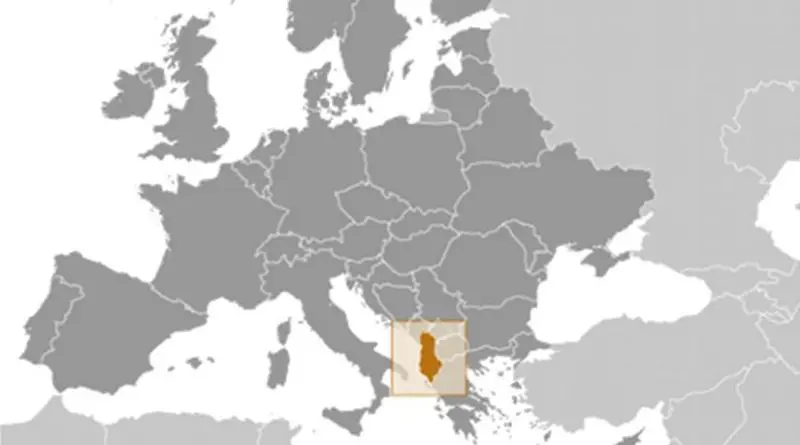Climbing Mountains On EU Path: Organized And Violent Crime In Albania – OpEd
On April 7th, 2016, Saimir Beqiri was found gunned down outside a bar near the city of Elbasan. Witnesses say that two men wearing wigs and driving a Mercedes Benz had shot him in the head five times. His brother, Gentian Beqiri, while inside his own home and under police surveillance, was also gunned down in 2012. In addition to being a hakmarrje, or revenge killing, current investigations reveal this incident may have been a contract killing, meaning that Beqiri’s death was me porosi, or simply put: purchased. Unfortunately, these cases are common in Albania, and reflect a deeper societal problem: ineffective investigative and judicial institutions, and a reluctance by community members to come together to fight organized crime.
In its 2015 report on Enlargement Strategy in Albania, the European Commission admitted that:
“the police remain vulnerable to political pressure and corruption, thus hindering the effective investigation of organized crime cases. Substantial efforts are still needed to strengthen the capacity and improve the performance of all law enforcement authorities. Prosecutors dealing with sensitive cases related to organized crime should be granted special protection and ensured independence from any external and internal interference”.
While most Europeans today worry that Muslim majority countries like Albania and Bosnia & Herzegovina are source countries of terrorists, thus increasing a security risk for EU enlargement eastward, I argue that organized crime in Albania is the real threat. Highlighted from the 2007 accession of Romania and Bulgaria to the EU, as well as the 2013 accession of Croatia, organized crime in the Balkan Peninsula is rampant, leaving police and policymakers with protracted internal issues that will only continue to spread to other EU countries. Reflected in other societal epidemics, such as Italy’s Tangentopoli, organized crime in the Balkans may further enlarge the web of organized criminal groups in EU member states and undermine the rule of law. The growth of authoritarian style governments in Eastern Europe has already caused alarm, as concerns about the connections between these groups and politicians are cogent.
As mentioned in my article on burner phones, the Weberian “monopoly on violence” is under strain and organized crime thrives from it. In Albania, organized crime and contract killings often come hand-in-hand, allowing the country’s economic void to be filled by those with the means of violence. Assassinations are disturbingly common today, as the 2014 murder of Albanian businessman Artan Santo reminded us. Santo was shot in the head by masked men on a motorcycle in the center of Tirana and investigations regarding this killing have been effectively stalled.
More recently, in February 2016 in the city of Fier, businessman Nuredin Suli barely escaped an organized attack, in which explosive material activated via mobile phone under his car had a delayed detonation. Rudin Haxhia, the owner of a nightclub in the coastal city of Saranda, survived his fifth attack in December 2015 by an unknown shooter wielding an automatic weapon (previous attacks included shootings, explosives, and stabbings).
Not all homicides have explicit connections to contract killings, but many do. In January 2015, three young men admitted to being hired to place explosives under cars, in police commissaries, and on electrical voltage poles. Business was in such high demand, that one man admitted to being owed 16,000 euros by customers.
While the current economic malaise and a byzantine reform process are surely causal factors to much of the organized crime in Albania today, we should fear how frequent trends and habit lead to perpetuity and vested interests. Organized criminal groups are beginning to understand that the rate of return on criminal activities far exceeds the risk. If Albania and the EU are serious about future enlargement, a new policy direction must be pursued. A greater foreign vetting of investigative and judicial institutions must be carried out, as domestic capacity building and nominal investigate reporting are not sufficient. And most crucially, Albanian citizens need help to see how coming together is their best weapon against organized crime.
*Christopher T. Barber is a recent American graduate student of Johns Hopkins SAIS and consultant in South East Europe. Much of his work has focused on Albania and Kosovo, in addition to the former Yugoslavia and CIS countries.

